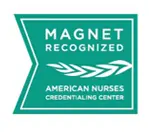Supervisor Hematology
- Req. Number: R-18060
-
Address:
85 Columbian StreetWeymouth,MA
- Department: SSH Laboratory Admin
- Status: Full time
- Shift: Day
- Schedule: Monday through Friday day shift schedule with potential weekends, if needed.
Job Description Summary
Under the general direction of the Director, and in conjunction with the Technical (Pathologist) Director and Chief of Pathology, is responsible for the supervision of the Hematology section of the Laboratory. All duties will be performed in accordance with established policies, procedures and standards, and will comply with criteria mandated by appropriate accrediting and licensing agencies.
Job Description
ESSENTIAL FUNCTIONS 1. Supervises all work performed within the section. This includes, but is not limited to, responsibility for quality of all tests performed, organizing workflow and prioritizing work as needed. a. Reviews all test results and QC data generated in Hematology, urinalysis, coagulation and serology as per established criteria by CAP and other regulatory agencies. b. Maintains a procedure manual that is accurate, up-to-date and in compliance with format and content established by Clinical & Laboratory Standards Institute (formerly NCCLS), CAP and other regulatory agencies. Review and updates at least annually and maintains documentation of all changes to procedures. Formally communicates all procedural changes to staff and documents staff acknowledgement of these changes. c. Oversees Instrument Maintenance Program and assures maintenance is performed, as defined in the policies & procedures. Establishes written maintenance logs, troubleshooting guidelines, written problem/resolution logs and works with vendor to assure all activities, including Preventive Maintenance are performed to maintain the instruments to perform optimally. d. Assures that tests are performed within established turn around times and regularly seeks opportunities to improve service and meet/exceed patient/client needs. e. Assures consistently high quality test result records as evidenced by data review, Quality Control, Proficiency Testing, CAP Inspections, and feedback from clinician. f. Assures Competency of Staff in interpreting Quality Control Data. g. Develops comprehensive systems to monitor the quality of work. This plan (QC, QA, & Proficiency Testing) is written and shared with staff to ensure consistent compliance. 2. In collaboration with other section supervisors, schedules work assignments and plans work schedules of employees to maintain consistent and adequate coverage of the entire laboratory. a. Posts schedule of hematology staff thirty (30) days in advance. b. Posts daily assignments in Hematology a weekly basis and updates to meet the needs of each department to assure adequate coverage. c. Meets regularly with Management Team to schedule department wide staffing issues. Collaborates with peers to assure cross coverage and that minimum staffing needs are consistently met. d. Shares in rotation to provide coverage for vacancies, absences, and paid time off. Is responsible for assuring the adequacy of coverage. 3. Establishes & maintains an effective inventory control system that assures inventory levels that consistently meet the demands of the workload. a. Prepares laboratory purchase orders and submits for approval. Adheres to procedures regarding acquisition of, and payment for, goods and services. b. Establishes a formal procedure for assessing inventory levels and involves the staff in participation in this process. c. Focus is on efficient use of reagents and supplies that is consistent with workload volume and budgeted resources. 4. Hires, trains, and ensures competency of staff. a. Orients and trains new employees to perform all procedures following established protocol. Documents all training of new employees and completes evaluation form within the 90 day probationary period. b. Trains all employees when new procedures, instruments or methods are established. Provides staff with written and practical exercises and tools to learn procedures and demonstrate compliance. c. Prepares and implements annual Competency Plan and maintains documentation of technical competency of all staff who perform testing within the section, as per departmental and Hospital Competence Policies & Procedures. d. Documents communications with staff when policies or procedures are changed or introduced to assure staff understanding and compliance. e. Develops performance goals/objectives with each staff member to promote maximum productivity, proficiency and professional growth, as evidenced by written goals on performance appraisals. 5. Consistently and fairly implements Human Resources Policies to promote positive employee relations. a. Collaborates with Human Resources on the effective recruitment and selection of qualified employment candidates. b. Ensures employee compliance with all Hospital & Departmental policies & procedures. c. Conducts annual performance evaluations on all departmental staff. Completes employee performance appraisals thoroughly and submits on time. d. Provides ongoing and timely feedback to staff relating to performance issues. Consistently recognizes employees for exceptional service to patients and others. e. Conducts at least one mid-cyle performance assessment for all direct reports to provide feedback relating to attainment of goals, performance and behavioral expectations. f. Keeps the Director informed of significant Performance issues and seeks counsel as to appropriate courses of action. g. Follows human resources policies to implement progressive discipline, when necessary. 6. In collaboration with the Director and Technical Director (Pathologist), is responsible for the evaluation, selection, and documentation of testing of all new instruments, methods and procedures for testing performed in the Hematology section. a. Serves as primary contact for vendors and makes recommendations regarding equipment status, reagent costs, service agreements, etc. Monitors expenditures and performs cost analysis on equipment purchases/rental agreements. b. Follows established protocols for implementing new instrumentation and/or procedures as per CLSI Guidelines. c. Solicits feedback from physicians & other caregivers as to the adequacy of testing protocols. 7. Maintains accurate and complete documentation required by regulatory agencies, including quality control, Performance Improvement, instrument maintenance service records and other record keeping requirements of the laboratory licensing and accrediting agencies and organizations. a. Is responsible for the performance of all Quality Control required to maintain precision, accuracy, and quality of testing. Establishes a comprehensive QC program that is in compliance with CAP and CLSI Standards. b. Implements new procedures as needed to ensure compliance with state regulations and all regulatory agencies (CAP, CLIA, JCAHO) c. Documents all QC on a daily basis, submits monthly and quarterly Quality Control/Assurance reports. d. Oversees performance of Proficiency Testing (CAP surveys) among staff, documents results, submits reports at appropriate time, reviews results with staff, and submits documentation of investigation and corrective action on all unacceptable performance challenges. Assures that all staff participate in Proficiency Testing as part of on-going technical Competency process. e. Maintains and updates the Hematology laboratory procedure manuals and protocols, according to Hospital policy and NCLSI standards. f. Reviews and signs all procedure in Hematology section on at least an annually basis according to CAP requirements, JCAHO and all regulatory agencies. g. Annually establishes departmental Performance Improvement Initiatives that are consistent with, and support SSH strategic planning initiatives and Annual SSH Performance Goals. h. Identifies opportunities for improvement and incorporates into formal PI plan that meets JCAHO and other regulatory agency requirement standards. Collects and reviews data and plans response to findings. i. Keeps staff engaged in PI iniatives, and shares quarterly reports at staff meetings. 8. Responsible for the fiscal management of section; assures proper utilization of organization’s financial resources. a. Establishes and submits section budget within designated deadlines according to all budgetary policies and procedures. b. Effectively utilizes resources within established budget; notifies Director of all variances anticipated, or incurred. Identifies and implements actions needed to bring expenses in line with budget. c. Performs assessment of the efficiency of the utilization of all resources in the department, including personnel management, equipment/reagent evaluation and method development. d. Prepares bi-weekly FTE utilization reports and budget reports monthly, and submits responses as scheduled. Responds to variances and establishes effective action plans to meet departmental budget goals. e. Recommends ways to reduce expenditures and/or enhance revenues without compromising quality of services. f. Is proactive in managing resources. Regularly runs utilization reports to monitor expenditures prior to end of cycles to assure budges are met. g. In collaboration with the Medical Director, services as a resource for providing technical guidance to physicians, nurses and other care-givers. 9. Responsible for section’s operational excellence; Manages all activities to assure section delivers quality services in accordance with applicable policies, regulatory requirements and professional standards. a. Establishes and implements policies and procedures to achieve departmental objectives, as identified in the Strategic Plan for the Hospital and Department. b. Organizes test schedules for the most cost effective and highest quality production of results, without compromising patient care. c. Maintains effective and appropriate staffing. Monitors employee turnover, overtime and absenteeism and creates a work environment that recognizes employees for individual and team accomplishments, and exceptional service. d. Maintains sectional productivity measurements; reports status monthly. e. Is proactive in managing resources. Regularly runs utilization reports to monitor expenditures( prior to end of cycles to assure monthly budget goals are met. f. Consistently monitors ( collects and maintains data) to assess volume ( high volume/high cost tests) and identifies opportunities to reduce costs and implement action plans to achieve cost reductions. 10. Effectively communicates departmental, organization and industry information to staff. a. Motivates and encourages professional growth, as evidenced by annual goal setting and achievement for all employees. b. Gathers, interprets, and delivers information to staff in a timely fashion. c. Conducts departmental employee meetings on a monthly basis and distributes minutes to staff. d. Assures staff understands information as evidenced by staff compliance with, and participation in, hospital programs, seminars, training and related activities. e. Communication with staff is effective, resolving conflicts which may hamper relations and productivity. Promotes open door policy of communication for all employees. f. Uses hospital communications resources to inform internal and external audiences of departmental news/achievements/policies. g. Meets at least monthly with Medical Director to keep him informed as to technical and operational issue and to solicit input in issues such as PI, QC, new methods and instrumentation. h. Meets bi-weekly with Administrative Director, completes meeting template and submits 24 hrs to meeting. Keeps Director informed as to on-going issues and works collaboratively to resolve operational, technical and administrative issues. 12. Safety Awareness – Fosters a “Culture of Safety” through personal ownership and commitment to a safe environment. a. Serves as a role model for all Hospital & Departmental Safety Standards through consistent compliance with the established Safety Policies & Procedures (including General Safety, Clinical Hygiene Plan, Blood Borne Pathogen & other OSHA and Regulatory requirements). b. Continually monitors staff for compliance and all Hospital & Departmental Safety Regulations/Standards. Is responsible for assuring consistent compliance. c. Seeks opportunities to improve Patient Safety and encourages the staff to do the same. Implements changes to existing operations to support the goal of keeping out patients safety. d. Seeks opportunities to improve Patient Safety and encourages the staff to do the same. Implements changes to existing operations to support the goal of keeping out patients safety. e. Is responsible for maintaining & updating all Safety Related Procedures & Guidelines, reviews at least annually. ESSENTIAL FUNCTIONS (Cont.) I. Technology and Learning a. Participates in continued learning and possess a willingness and ability to learn and utilize new technology and procedures that continue to develop in their role and throughout the organization. b. Embraces technological advances that allow us to communicate information effectively and efficiently based on role. NON-ESSENTIAL FUNCTIONS 1. Maintains and updates technical and managerial knowledge and skills through reading, attending workshops and seminars, and shares this knowledge with staff to provide continuing education opportunities for employees at staff meetings. 2. Collaborates with Supervisors, Managers, Directors and Pathologists in achieving departmental goals. Is an effective team member and consistently demonstrates behaviors consistent with a highly functioning team. Shares in the work of the Team, is outcome focused and follows through with responsibilities assigned to the Team. 3. Submits, reviews and approves payroll for the section. Monitors appropriate utilization of Productive & Non-Productive time. Assures staff compliance with Hospital Pay Practices, Policies & Procedures. 4. Reports deviations from Policies & Procedures, as appropriate, using the Hospital Incident Reporting Database. Provides timely and thorough follow-up and corrective action to all assigned incidents. 5. Performs work of equal skill and responsibility as directed. May also perform work of higher level in preparation for increased responsibility and may be requested to perform work of lesser responsibility, when work load of section so requires. Performs bench work in the Hematology section as appropriate. 6. Participates in special project work, as assigned by the Director of the Department. Performs other tasks as assigned by the Director or Chief of Pathology. Readily accepts assignments and completes work, as assigned, on time. 7. Readily accepts assignments and completes work, as assigned, on time. 8. Manages issues on assigned weekend effectively. Makes adjustments to assignments, as demanded by workload, initiates problem solving pertaining to instrument problems or unusual issues that may arise. 9. Works collaboratively with IS Department (LIS Applications Specialist) to assure accurate and efficient utilization of Laboratory MediTech systems. 10. Tests new Meditech codes, and tests interfaces with direction from Meditech & IS support (Meditech documentation) 11. Builds, maintains, and assures the accuracy of the Meditech QC program. 12. Assures the accuracy of the test dictionaries (including billing data) through periodic audits and documents these activities as per established protocols. 13. Conducts period audits and validation of system calculations and Normal Ranges as per established protocols. 14. Achieves annual goals, as established at the time of Annual Performance Review. Attains all agreed to goals and objectives within specified time frames, as part of the organization’s overall mission. Demonstrates behavior focused on achieving throughout the year. Requires minimal intervention by the Director to assure that assignments are complete, accurate, and submitted on time. Must be knowledgeable and experienced in Hematology, Coagulation, Urinalysis and Serology testing. Able to establish an effective, comprehensive Quality Improvement & Quality Control Programs for the department. Skilled at managing multiple priorities, organization and interpersonal and communication skills must be well developed.






